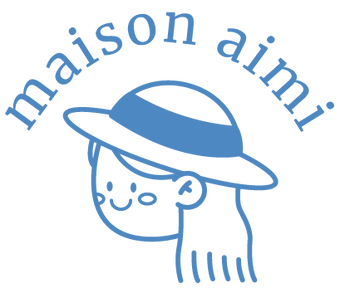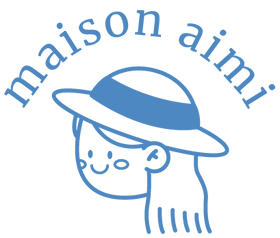Top 10 Relaxing Drinks for Better Sleep

Sleep disorders, which include difficulty falling asleep, insomnia, waking up unexpectedly and the feeling of not having restful nights, affect around 25% of adults in France today. Is this your case? Our first recommendation would be to consult a doctor: your difficulties are legitimate and you have the right to seek solutions ❤️. In addition to monitoring, know that what you consume (food and drinks) can help you relax and sleep better. The reasons for these sleep disorders can be diverse (stress and anxiety, illness, suffering) and diet can play a real role in your well-being. Maison Aimi has specialized in the development of wellness drinks from Japan since 2022. As such, we offer you in this article our top 10 relaxing drinks that can help you sleep better.
1. Barley infusion 🌱
The first interesting relaxing drink to promote falling asleep and sleep quality is barley infusion. This drink, created from the infusion of roasted and crushed barley, has two interesting features: it does not contain caffeine and is rich in GABA, a molecule whose role is to regulate brain activity by allowing in particular to “turn off your brain”. Several studies have shown the effectiveness of the GABA molecule on falling asleep and sleep quality (1).
In other words, barley infusion is an anti-stress drink that promotes falling asleep and quality of sleep. You absolutely have to try it! In addition, you will appreciate its sweet and delicious caramelized taste that is similar to black tea or coffee. At Maison Aimi, in 2022 we developed a 100% French and organic barley infusion , made from French barley from organic farming (AB certified) and whose grains are crushed and canned in our workshop in the Paris region. Taste it without delay.
2. Chamomile infusion
Chamomile is a daisy-like flower native to the Mediterranean region that is part of the Asteraceae family. It has been recognized for several hundred years for its calming properties. Recently, a 2024 meta-analysis of a number of scientific studies (1) showed that chamomile tea improves sleep by reducing the number of nighttime awakenings and helping to maintain a more stable sleep, although total sleep time is not significantly increased. Chamomile contains compounds that have a relaxing effect on the nervous system, which can help induce sleep and improve its quality.
To make chamomile tea at home, add 4 tablespoons of fresh chamomile flowers (or 2 tablespoons of dried flowers) to 1 cup of boiling water. Let the flowers steep for about 5 minutes before using a mesh strainer to drain the liquid from the flowers. We recommend using flowers from an organic herbalist to avoid pesticides. You can also opt for 100% organic chamomile teas.
3. Valerian infusion
Valerian is a perennial plant, belonging to the honeysuckle family and native to Europe and Asia, used since ancient times as a natural remedy to treat various ailments, such as sleep disorders and anxiety. Today, it is mainly its root that is prized in herbal medicine for its sedative and calming properties. The latter is in fact rich in active compounds such as valepotriates and valerenic acid, which increase GABA (gamma-aminobutyric acid) levels in the brain. This neurotransmitter plays a key role in regulating mood and stress, thus promoting relaxation and falling asleep faster. In 2020, a meta-analysis (a study bringing together 60 scientific studies) demonstrated that the consumption of valerian root was effective in reducing sleep disorders but that the effectiveness depended on the quality of the plants and the administration of the plant.
If you have trouble falling asleep and staying asleep, valerian root tea is an ideal and natural relaxing drink to help you establish a healthy sleep routine. Valerian can be prepared by steeping 2 to 3 grams of dried root in hot water for 10 to 15 minutes. You can also find it in the form of tea bags at organic grocery stores.
4. Red tea infusion (rooibos)
Rooibos is a shrub native to South Africa, whose leaves are used to prepare a scarlet red infusion ideal for promoting sleep. It is wrongly called "red tea": it contains neither caffeine nor theine and the absence of this molecule means that it does not disrupt the nervous system, unlike classic teas. This drink has relaxing properties that help reduce stress and anxiety, two factors often responsible for sleep disorders. Moreover, rooibos is beneficial for digestion: it can relieve abdominal pain and digestive discomfort, thus promoting undisturbed sleep.
All these reasons (no caffeine, relaxing drink, drink good for digestion) make rooibos a great ally to help you fall asleep. In addition, it is particularly delicious with its naturally sweet taste. Try it!
👋 The only drawback of rooibos is that it is not grown in France: it is grown exclusively in South Africa, in the Cederberg region, north of Cape Town. You will therefore need to choose organic and fair trade to limit its impact.
5. Ashwagandha Tea
Ashwagandha, often called “Indian ginseng,” is a medicinal plant recognized for its benefits in Ayurvedic practices, including reducing stress and anxiety and improving sleep and falling asleep. According to a 2019 study (2), ashwagandha extract showed a significant, albeit moderate, improvement in sleep quality compared to a placebo. This suggests that it may promote faster falling asleep and more restful sleep, although more research is needed to confirm these effects.
These early results make it a natural and gentle option to try if you are looking for a better night's rest. Ashwagandha is now available in tea bag form, available in health food stores or organic grocery stores. For a comforting drink, we also invite you to discover it in "moon milk", an Ayurvedic drink that combines ashwagandha with hot milk, cardamom, cinnamon and nutmeg, creating a soothing potion ideal before bed.
6. CBD infusion
CBD, short for Cannabidiol, is a molecule found in hemp flowers of the Cannabis Sativa Sativa variety. Since 2020, the date of its authorization in France, it has been highly acclaimed because it would act on both sleep and stress thanks to its action on neurotransmitters. Despite its recent popularity, there is no solid study (double-blind, placebo, etc.) at present that would support the effects of CBD on sleep and anxiety, but many testimonies tend to show its interest.
Today, it is possible to consume CBD in the form of gummies, herbal teas or oil and we can only invite you to test the effects of CBD on you if you are experiencing sleep problems.
CBD, is it really safe and natural?
CBD consumption has been legal in France since 2020 and is considered safe (provided you do not exceed the limit of 300mg per day). If CBD is extracted from hemp (like cannabis and the THC molecule), it does not cause addiction or psychotropic effects. However, CBD-based products in France mostly contain a little THC (the limit for French products being 0.2%).
In addition, there are different qualities of CBD. It can indeed be extracted from the hemp flower in various ways, more or less natural (cold pressing is a natural extraction while there are chemical processes). If this point interests you, it will be important to find out about the brand you consume.
7. Melatonin infusion
Melatonin infusions are drinks that contain melatonin, a natural hormone produced by the pineal gland in the brain. The latter plays a key role in regulating sleep: it helps induce sleep and improve the quality of sleep. It also has the advantage of not causing any dependence or addiction. In addition, melatonin infusions are generally formulated with calming plants (we mentioned chamomile and valerian) to increase their effectiveness.
If you have trouble sleeping, testing infusions based on melatonin and relaxing plants is an interesting solution. This will allow you to test the effects of this molecule on you and see if it can improve your difficulty falling asleep.
Melatonin, is it really safe and natural?
The use of melatonin is considered safe but it is recommended to respect the doses recommended on the packaging of the products you consume. Overconsumption of melatonin can cause side effects, such as digestive disorders, drowsiness during the day, or mood disturbances.
It is difficult, however, to say that melatonin is 100% natural. While melatonin does exist in our bodies in its natural state, the melatonin present in infusions and food supplements is exclusively synthetic melatonin. Generally, this involves extracting the precursor amino acids of melatonin (particularly tryptophan) and then chemically transforming it into melatonin.
8. Milk of animal origin, cold or hot 🥛
Drinking warm milk before going to sleep is a grandmother's trick supported by science. Indeed, milk of animal origin (cow, goat, sheep) promotes sleep thanks to its tryptophan content. This amino acid increases serotonin levels in the brain, thereby stimulating the production of melatonin, the key hormone for regulating sleep that we have already discussed.
In other words, don't hesitate to drink a glass of whole milk (hot or cold) before going to bed to help you fall asleep and sleep better. We recommend drinking it whole because the presence of fat increases the absorption of tryptophan.
9. Almond milk 🥛
Almonds, and by extension almond milk, are rich in nutrients that are beneficial for sleep. Almond milk contains hormones and minerals that promote rest, such as tryptophan, melatonin, and magnesium. One cup (237 ml) of almond milk provides about 17 mg of magnesium, an essential mineral that has been shown to be effective as a potential treatment for insomnia, particularly in older adults.
Almond milk, whether cold or hot, therefore appears to be an interesting drink to try before going to bed and to integrate into a bedtime routine if you like its taste. You can find almond milk in most stores today or cook it yourself from almonds. Our recommendation would be to take it organic for better respect for your health.
⚠️ Since almond milk is made from whole almonds, people with nut allergies should avoid almond milk and almond milk products.
10. Mugicha latte, our favorite ❤️
A cross between barley infusion and milk or almond milk, mugicha latte is a milky drink made from barley powder. In addition to being tasty and reassuring, this drink combines all the benefits of mugicha latte (including the famous GABA molecule) but also those of milk or almond milk (depending on the milk you choose to use to make it). This is why we can only recommend that you try it as part of a ritual before going to sleep.
To prepare a mugicha latte, it’s very simple!
- Pour a teaspoon of mugicha powder into a cup
- Add warm (not boiling!) milk (or almond milk) and stir well. You can use an electric whisk at the very beginning to avoid lumps!
- Add the rest of the hot milk
- And there you have it, a mugicha latte!
As a bonus, you can add agave syrup or honey to sweeten this drink. Don't deprive yourself: contrary to popular belief, sugar helps you fall asleep. So adding a little bit of it can be beneficial!
We talk about it in this article
Sources
(1) The effects of GABA on sleep onset and sleep quality (2012, article in English 🇬🇧) (1) The effects of chamomile on sleep (2024, article in English 🇬🇧) (2) The effects of valerian on sleep (2020, article in English 🇬🇧) (3) The effects of Ashwaganda on sleep (2019, article in English 🇬🇧)




